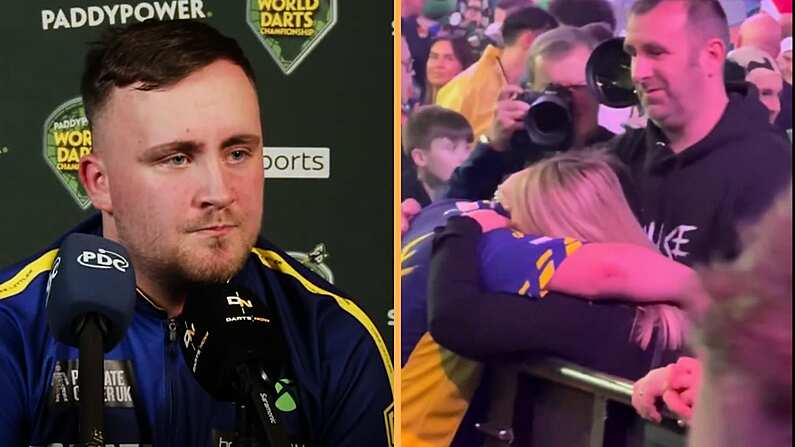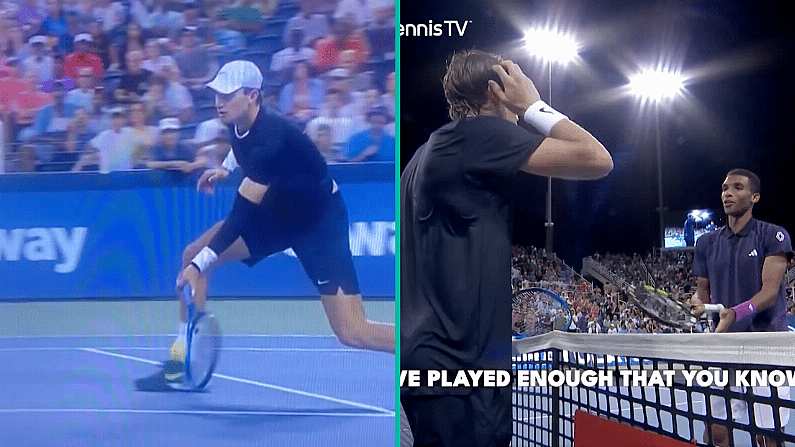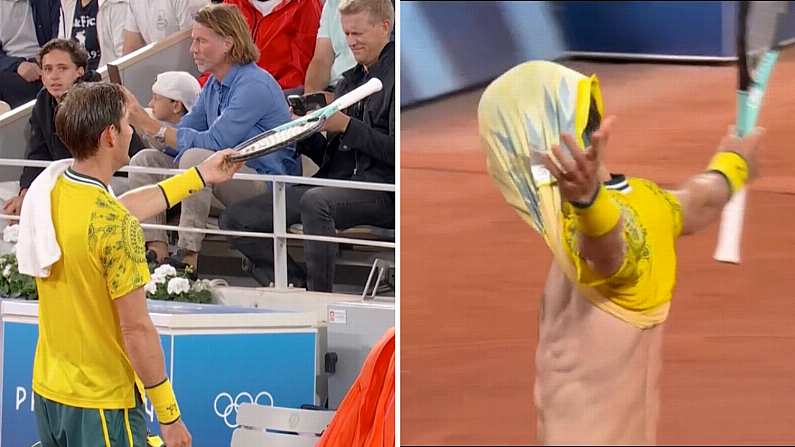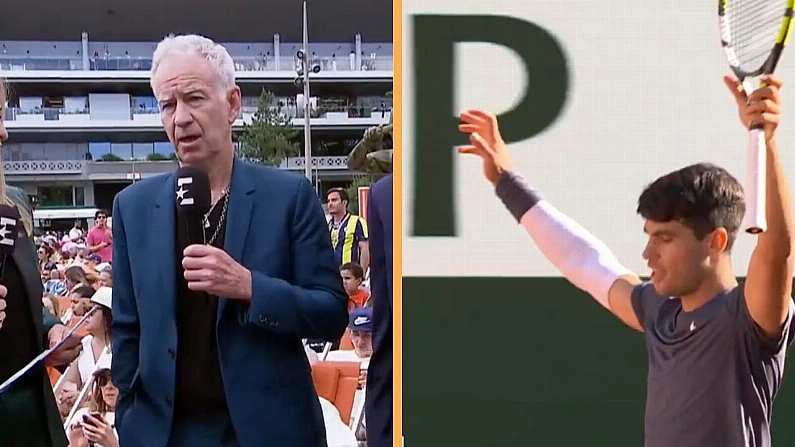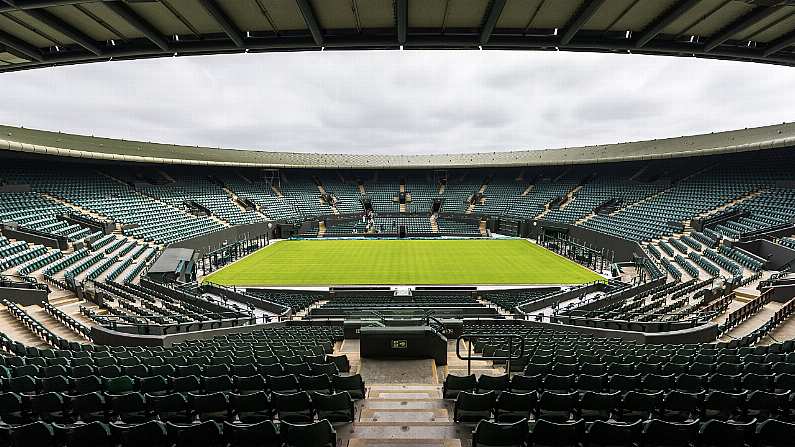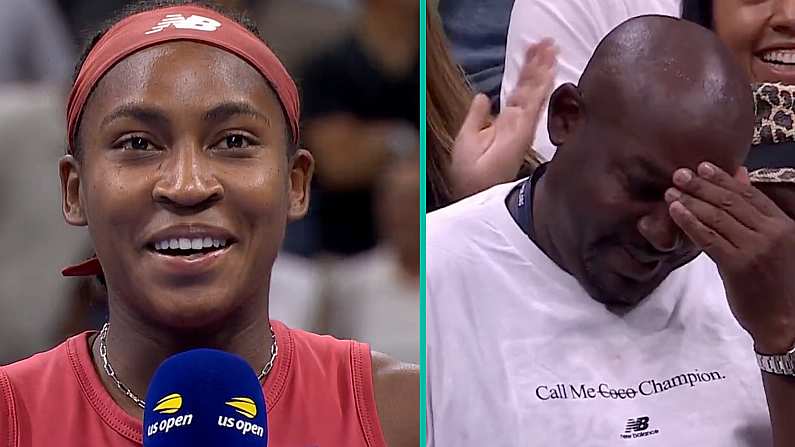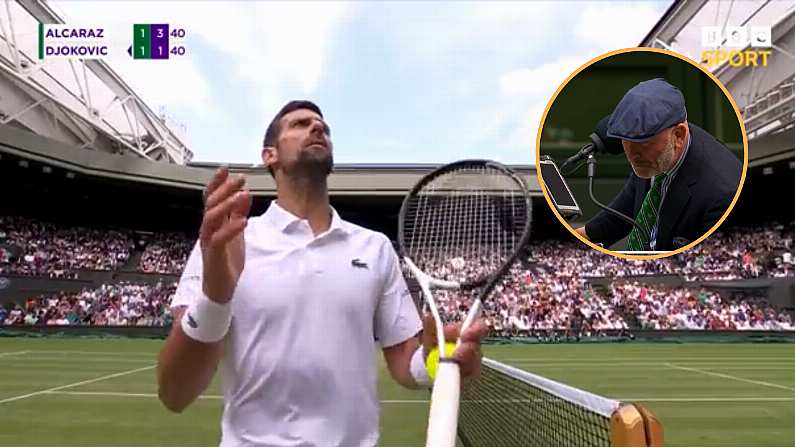Some know only of silent seasons.
Sam Barry is Ireland's best male tennis player and is the subject of a new documentary by Craig Speer called Sam Barry: Beyond the Baseline. The epigraph is taken from Andre Agassi's autobiography:
Of all the games men and women play, tennis is the closest to solitary confinement.
The film charts two years in Barry's life. The aim is to feel at home on the world stage; the price is to leave home for it.
Barry takes leave of his Limerick home to compete at obscure tournaments to collect the points and ranking places necessary to earn his place among the elite, with 35 tournaments meaning 45 weeks away from home every year. The documentary opens with Barry thumbing through the myriad stamps on his passport, not all of which he knows.
He does not have to explain that such travel is not as glamorous as it might be perceived: the footage screams it. Footage of Barry sitting idly in airports, hotels and bus stations says that much; the tournament footage doubly so.
Tennis has three main divisions: the Futures tour, the Challengers tour, and the ATP tour are the respective Non-League, Championship and Premier League of the sport. Make even the fringes of the ATP tour, and you'll be stringing up at the Grand Slams. Barry's is the battle to get there.
He travels to the edges of continents and often to the edge of reason for these competitions, and a chance to climb the rankings. To count the entire attendance at some of these matches would not exert a thumb: its's frequently Barry, his coach, his opponent, and the umpire.
The score is displayed by the umpire on crass metal plates that swing on bare metal bars, like rustic signs outside abandoned American saloons. Back home, his parents and brother follow the results on a screen displaying nothing but the score, with the intervals between update loosening the imagination.
Barry cannot afford a coach all year round. Here he has hired a French coach, Romain Jurd, on a week-to-week basis, in a bid to give him what he needs to make it to where he wants to go. Jurd's velvet accent does not diminish the brusqueness of his counsel and his occasional on-screen exasperation with his Irish student is as real as it is compelling.
That, however, is nothing like Barry's ruthless self-analysis. In defeat, his tongue will occasionally slip into excuses, but is swiftly quashed by stiff self-reproach for "talking like a loser"
But for all of this, ultimately in tennis, money doesn't talk as much as it screams Game, Set, and Match.
Barry admits that a deeper well of resources means he could hire the coach and the physio that could catapult him to that higher plane, but that's a six-figure invoice. He scrabbles together what he can, but admits that he is "trying to catch a cruise ship in a dingy".
As a money-making exercise, he admits that this entire endeavour is "nonsensical". He won a tournament in Israel, and his prize money was a total of €144.46. It didn't cover his costs of getting there. He considers leaving the trophies he wins behind: they are flimsy enough to break in his bag.
And yet.
The frequent refrain in the film is "one good week". All Barry needs is one good week. The cheque from losing in the first round of a Grand Slam is enough to reinvest to make it easier to come back next year; to finally roll that rock over the hill. He feeds the heart on the delicious fantasies of one good week.
David Foster Wallace wrote of the endless possibilities of the sport: that the baselines of the tennis court merely direct the sport's "infinite expansion". The story told in this documentary is the opposite. In the world's expanse, Barry has one narrow view. One good week.
When his mother asks how is Tel Aviv, Barry's reply is "The courts are slow. The hotel breakfast is shite", a singular focus occasionally interpolated with perception: "that's what I'm worried about. There's a war on up the road!".
One good week.
After a match in Spain, Barry comes off the court to greet a friend, who tells him that Ireland had just beaten Italy 1-0. The brief flicker of joy on Barry's face is proof of Irish sport's ability to pulse life around the world.
Sam Barry's obscure odyssey is its remoter soul.
Sam Barry: Beyond the Baseline is on Eir Sport 1 on Thursday, June 1st, at 9.30pm. It is available on free to air and is funded by the Broadcasting Authority of Ireland. It was filmed and directed by Craig Speer, produced by GMarshTV Productions and Gillian Marsh and edited by John Murphy.
Photo Credit: Claire Keogh
Sam Barry - Beyond the Baseline trailer from GMarsh TV Productions on Vimeo.



